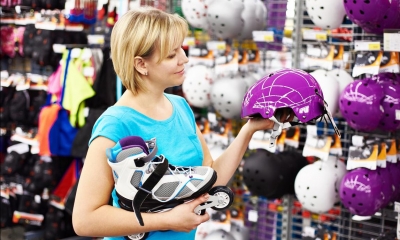
The following is an outline of some of the key pieces of legislation that are likely to apply to bicycle retailers.
What licences does a bicycle shop need?
Although you don't need a specific licence to sell bicycles and related accessories, some of your other business activities may need one.
Cycle safety regulations
You should be aware of consumer protection legislation and of special safety legislation relating to new bicycles sold in the UK. This includes the Pedal Bicycles (Safety) Regulations which set out safety standards for new bicycles. Standards also apply to children's cycles and all cycle helmets. You must only sell products which comply with the standards. You can read about your responsibilities under the regulations on the Cycling UK website.
If you're planning to sell electric bikes, it's also a good idea to familiarise yourself with the relevant legislation so that you know which bikes can be legally ridden on the road. There's a useful summary on the Pedelecs website.
Licensing of second-hand dealers
Local authorities in Scotland require second-hand dealers to obtain a licence or registration to operate. This applies unless dealing in second-hand goods is only incidental to the main business activity. Elsewhere in the UK, some local authorities license or register businesses (with some specific exemptions) where second-hand dealing is the main or a significant part of the business and is not just incidental. Businesses which hold consumer credit authorisation are normally exempt. If you are in any doubt as to whether second-hand dealer licensing may apply to your business, contact your local authority trading standards department for guidance.
Selling general insurance
If you sell, advise on, arrange or assist in selling general insurance like bike theft/damage insurance or third party liability insurance, depending on the type of policies you sell you may need to be either directly regulated by the FCA or become an appointed representative of an FCA authorised principal insurer, even if insurance is only a small part of your business. Visit the FCA website for further information.
Selling in-store finance
You will need consumer credit authorisation from the Financial Conduct Authority (FCA) if you want to offer finance to your customers. You can get more information from the FCA website.
Selling food products
If you decide to stock food products, such as energy bars and sports drinks, you will need to register with your local authority environmental health department. There is no charge for this.
Contact your local authority environmental health department early on in your planning so that you can register in good time - you need to be registered 28 days before you can start selling food.
Retailing
There is a wide range of legislation that applies to retail outlets, much of which protects the interests of the consumer. For example, the retail price of goods must be clearly displayed. You will be responsible for making sure that all goods or services are fit for their intended purpose and of satisfactory quality. If you sell online you also need to be aware of the special rules that cover distance selling.
There's detailed guidance on your legal obligations to consumers, and on the requirements when selling online, on the Trading Standards Business Companion website. Guidance on consumer protection regulations for businesses like retailers is also available on the Gov.uk website.
If you sell any type of food product (for example energy bars and drinks) you will be affected by food safety legislation.
Playing background music
If you play background music in your shop then you're likely to need a Music Licence from PPL PRS Ltd. There is an annual fee for this which you can pay online on the PPL PRS website.
Carrier bag charge
A minimum 10p charge applies for single-use carrier bags in England (other rules apply in Wales, Scotland and Northern Ireland). You can get detailed guidance from the GOV.UK website.
Health & Safety, fire
You must comply with workplace health and safety and fire safety legislation.
Employment legislation
Anyone employing staff must comply with employment legislation. Important areas of legislation include recruitment, employment contracts, pay, working hours, holidays, employment policies, sickness, maternity, paternity, discrimination, discipline, grievances, dismissals, redundancies and employment tribunals.
Insurance for a bicycle shop
Contact an insurer or insurance broker and explain exactly how your business will operate - they will then explain what insurance cover you must have by law, and other cover you should consider. This might include:
- premises, premises contents and stock
- employers liability (if you employ staff) and public liability
- motor insurance (for any business vehicles, for example a van)
The ActSmart business support organisation offers discounts on bespoke cycle shop insurance to its members. They also provide a cycle insurance product that members can promote to customers in return for a referral commission (depending on the level of ActSmart subscription held). You can find out more from the ActSmart website.



